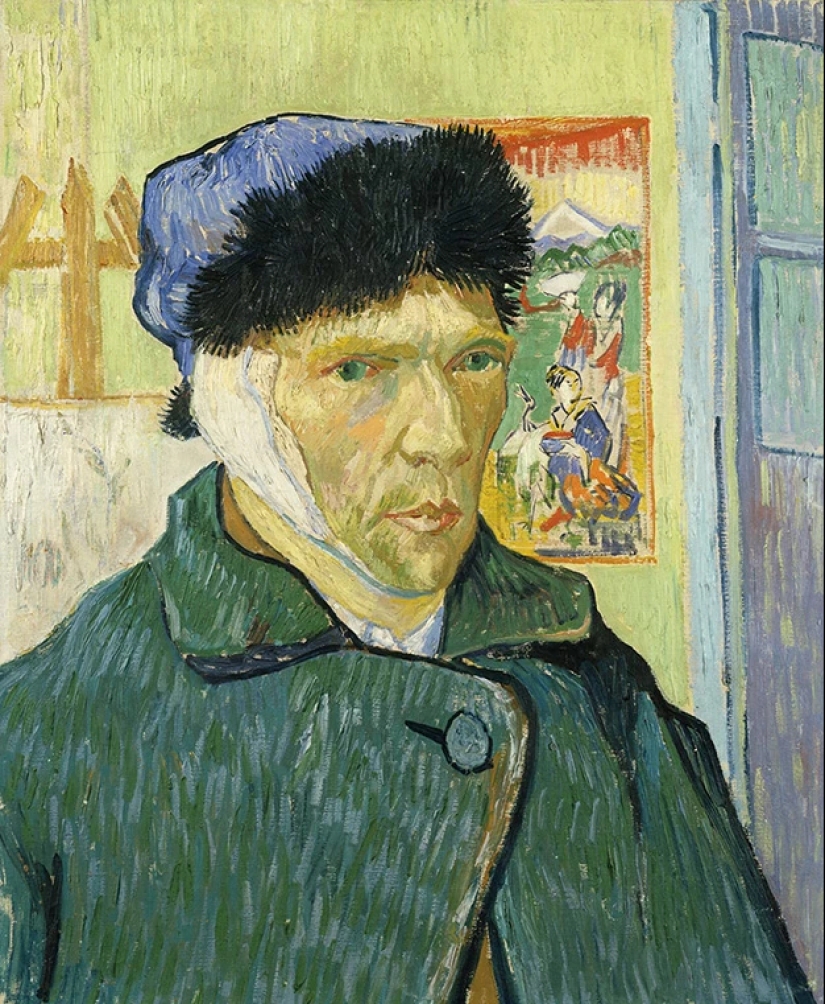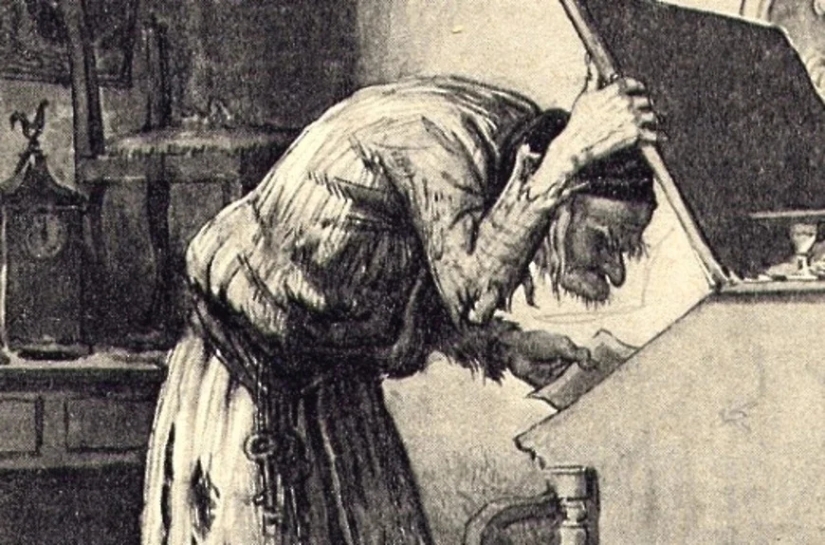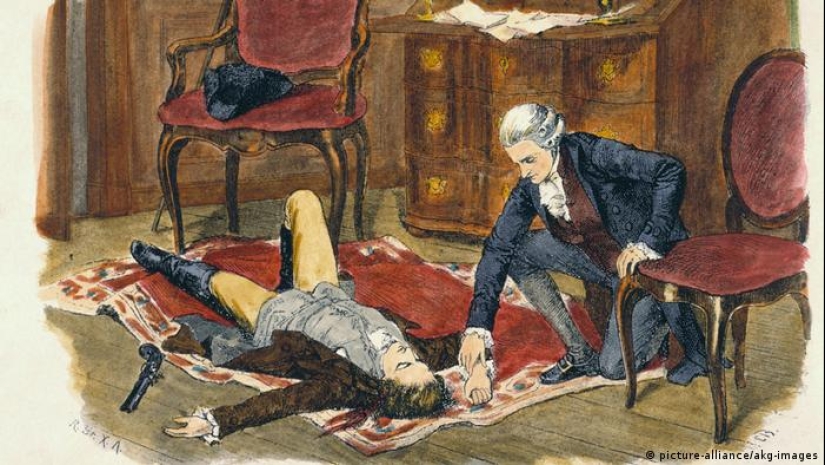12 Mental Disorders Named After Famous People and Characters
Categories: Health and Medicine | Science | Society
By Pictolic https://pictolic.com/article/12-mental-disorders-named-after-famous-people-and-characters.htmlAlthough the human psyche has been studied for centuries, it is still far from fully unraveling its secrets. However, scientists have still made significant progress and have described hundreds of mental disorders. Some of the syndromes are named after famous people, as well as literary and cinematic characters, due to similar symptoms.


This mental disorder is expressed in disgust for one’s personality, with complete external well-being and success. Despite the fact that a person’s merits are recognized by everyone around him, he considers himself a complete loser. The syndrome was named after the movie star and 20th century sex symbol Marilyn Monroe.
Experts believe that the actress suffered from a similar disorder, which was expressed, among other things, in love addiction. Also considered symptoms of this disorder are increased anxiety, inferiority complex, self-criticism and feeling like a child. People with such problems in advanced cases become dependent on antidepressants, sleeping pills and drugs.

This disorder is also called “intolerable lecturing.” Near a girl with this complex there are always “Pierrot” - a good guy who idolizes her, and “Pinocchio” - a bad guy on whom she has developed a neurotic dependence and whom she saves all the time.
The Malvina girl tries to train any man who comes within her zone of influence. She watches his clothes, speech and actions, constantly correcting and pulling back. Those who disobey are punished with insult - most often this is ignorance. Next to such a girl, the guy’s self-esteem rapidly falls, and her self-esteem grows just as quickly.

This diagnosis is given to those who deliberately cause themselves physical pain or injury. Such people often insist on surgical interventions, even if they are not necessary. The syndrome is caused by hypochondriacal delusions and sometimes schizophrenia.
This condition was named after the famous Dutch artist Van Gogh. According to legend, he, being depressed, cut off his earlobe. However, recently more and more of his biographers are inclined to believe that Van Gogh received the injury from his friend the artist Gauguin, who hit him with a sword. But the name has already become a classic of psychiatry and they are not going to change it.

Syllogomania, also known as Plyushkin syndrome, is an obsessive condition that involves a person collecting unnecessary, unused things. Violation forces a person to turn his home into a dump, unsuitable for normal life. This obsessive-compulsive disorder manifests itself in a reverent attitude towards everything that we are accustomed to consider garbage.
Any trash seems incredibly valuable to a person with this syndrome. Attempts to get rid of such “treasures” against the owner’s wishes can even cause aggression. The syndrome was named after the character in N.V. Gogol’s poem “Dead Souls” Plyushkin.

This disorder also manifests itself in collecting rubbish, but is additionally accompanied by a desire for complete social isolation. Psychiatrists believe that Diogenes syndrome may be caused by a disorder of the frontal lobe of the brain.
The disorder was named after Diogenes of Sinope, an ancient Greek philosopher who promoted asceticism. He lived in a clay pithos vessel, rejected conventions and often committed antisocial acts.

The complex was named after the wife of the ancient Greek philosopher Socrates. Her name has become a household name for grumpy wives who are extremely dissatisfied with their spouse and marriage in general. Moreover, the problem is not a bad character, but a sexual complex that requires work with a psychotherapist.
The basis is sexual dissatisfaction, which gives rise to increased pedantry and demands for cleanliness. Women with this disorder reject all manifestations of sexuality, lose their sense of humor and direct all their energies to solving issues of morality and everyday life.

The German classic Johann Wolfgang von Goethe in his novel “The Sorrows of Young Werther” told the story of a young man whose unhappy love drove him to suicide. The syndrome that leads a person to suicide is named after this tragic hero. It is based on imitation of people whose suicide has received widespread publicity.

People with this mental disorder feign illness or tell themselves that they are sick. Sometimes they extend their activities to others, such as their children. This often leads to tragedies, as in the sensational case of the young American Gypsy Blanchard.
Patients with Munchausen syndrome are confident in their illnesses. It is impossible to convince them, even by presenting evidence obtained through a detailed medical examination. Some even artificially induce symptoms of diseases in order to insist on their own. Usually the cause of this condition is the need for attention and care.

This mental disorder often occurs in creative people. Its reason is the lack of official regalia for national calling. There is a growing need for a person to receive formal recognition of his merits, for example, high awards or the title of People's Artist. This syndrome can cause disappointment in one's talents and professional stagnation.

Almost all of us are familiar with such a mental disorder. They are constantly late for something or are afraid of being late and therefore panic. These people live in a constant state of stress and fear. They always try to arrive early, set several alarms and look at their watches every minute. This is a type of neurotic condition.

This syndrome manifests itself in a passion for betrayal and hypocrisy. People suffering from it often convey information about other people to the authorities, complain and write denunciations. This disorder was named in honor of the pioneer Pavlik Morozov, who, during the era of dispossession, denounced his father to the security officers and became a hero (posthumously).

This condition can be considered one of the most mysterious psychosomatic disorders. It manifests itself in dizziness, rapid heartbeat and even hallucinations caused by... the impression of works of art. Sometimes Stendhal syndrome is associated with contemplation of natural beauty.
This disorder was named after the French writer Stendhal, who first described its symptoms. The writer himself experienced them during his visit to Florence, one of the most beautiful cities in Europe. Therefore, it is sometimes also called “Florentine syndrome.”
Recent articles

It's high time to admit that this whole hipster idea has gone too far. The concept has become so popular that even restaurants have ...

There is a perception that people only use 10% of their brain potential. But the heroes of our review, apparently, found a way to ...

New Year's is a time to surprise and delight loved ones not only with gifts but also with a unique presentation of the holiday ...